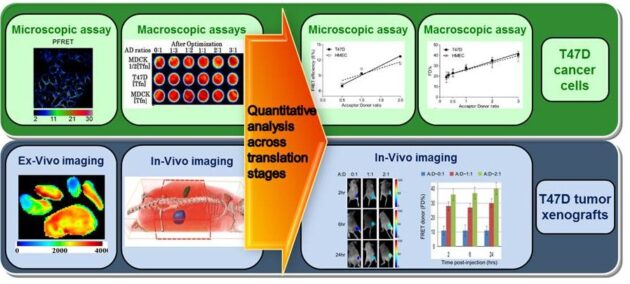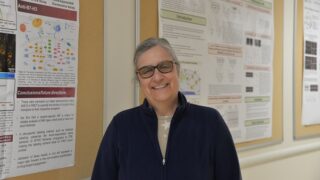Areas of Study
Drug delivery into cancer cells
Education
- Princeton University1995Post-doctoral researcher
- University of Lisbon, Portugal1991PhD
- University of Lisbon, Portugal1986BS
Research
Our research goal is to accelerate pre-clinical drug discovery by developing novel imaging assays to screen and optimize the delivery of targeted anti-cancer drugs. We are also interested in the regulation of membrane trafficking pathways and of receptor-mediated cholesterol and iron transport in live normal and cancer cells. Basic cell biology questions such as iron-mediated endosome-mitochondria interactions as well as the organization and regulation of the endocytic recycling pathway in human cancer cell lines are also a major focus of our laboratory research.
Check out other links:
My Bibliography, Google scholar, ResearchGate, LinkedIn
Our diverse expertise integrates basic cell biology with methodological advances in imaging technology to position our research group as a major force in the visualization, quantitation and optimization of drug delivery into cancer cells using receptor-targeted approaches. By integrating our knowledge on the endocytic trafficking of receptor-ligand complexes with our expertise on Forster Resonance Energy Transfer (FRET) and fluorescence lifetime (FLIM) imaging, we have developed novel in vivo and in vitro methods to measure receptor target engagement in tumors, a crucial parameter to accelerate the prioritization of the most efficient targeted anti-cancer therapy. Recently, Dr. Barroso's laboratory has been employing whole-body in-vivo near-infrared FLIM FRET imaging to quantitate the receptor-mediated uptake of near infrared-labeled ligands into tumor xenografts in live animals. The main goal of this exciting project is to develop a non-invasive whole-body imaging system to achieve the direct visualization of receptor engagement, dimerization and internalization into tumor cells.


